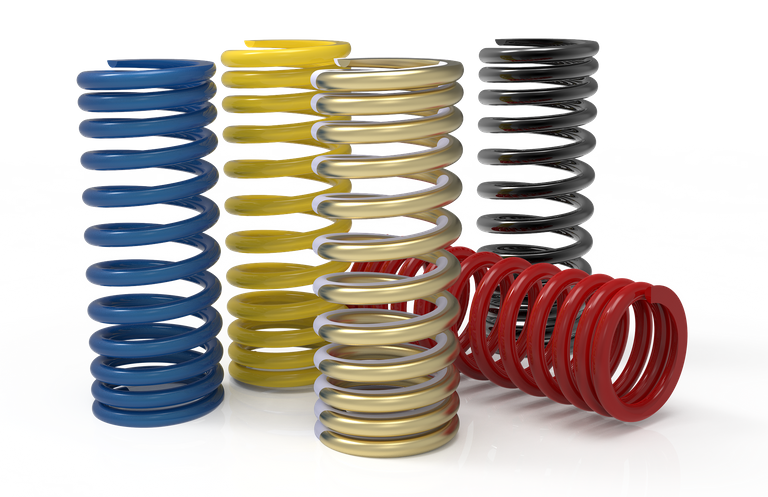The First Metal That Gets More Flexible When You Heat It Up
When you heat up a metal they usually expand and get softer losing their flexibility. The exception is elinvars that stay flexible when heated up. But a new Elinvar with a high level of entropy goes even further. When you heat it up to 727° Celsius it actually gets more flexible. This is something completely new.

Image by Vijesh Panchal from Pixabay
- Be also sure to check out my other posts and follow me @kralizec and subscribe to my Youtube channel at Kralizec Gaming Youtube Channel
The flexibility of a material is based on a characteristic with a new somewhat strange name – Elastic modulus. The higher the elastic modulus the stronger (and more flexible) the material is and it is harder to deform it. So far, we were convinced that practically all metals soften when heated up because they expand and their elastic modulus decreases. The exception were elinvars – alloys close to the Elinvar alloy which is made from nickel, iron, and chrome.
Researchers from the City University of Hong Kong recently went even further. By complete accident, they discovered an alloy that as the first known metal doesn’t fit the well-known rules and is even more extreme and classic elinvars. Not only does it not soften but stays flexible. It actually becomes more flexible after reaching a certain temperature. We never saw that before in any other metal.
The alloy in question is an Elinvar with a high level of entropy Co25Ni25(HfTiZr)50 – an alloy of cobalt, nickel, hafnium, titanium, and zircon. When the alloy reaches about 727° Celsius (1000° Kelvin) it becomes slightly more flexible than at room temperature. The material still thermally expands but there is no visible phase transition. This will change our textbooks.
Experiments also show that this superelastic alloy is capable of holding a lot of elastic energy. As elasticity doesn’t produce heat that could cause problems in a lot of devices it could be useful for very precise devices such as clocks or other chronometers. This could be for example used on the Moon where temperatures change from -232° Celsius to 122° Celsius or space missions in general.
Sources:
- If you like the content I’m producing about science maybe you will like the content I produce about gaming as well! Be sure to check out my other posts!